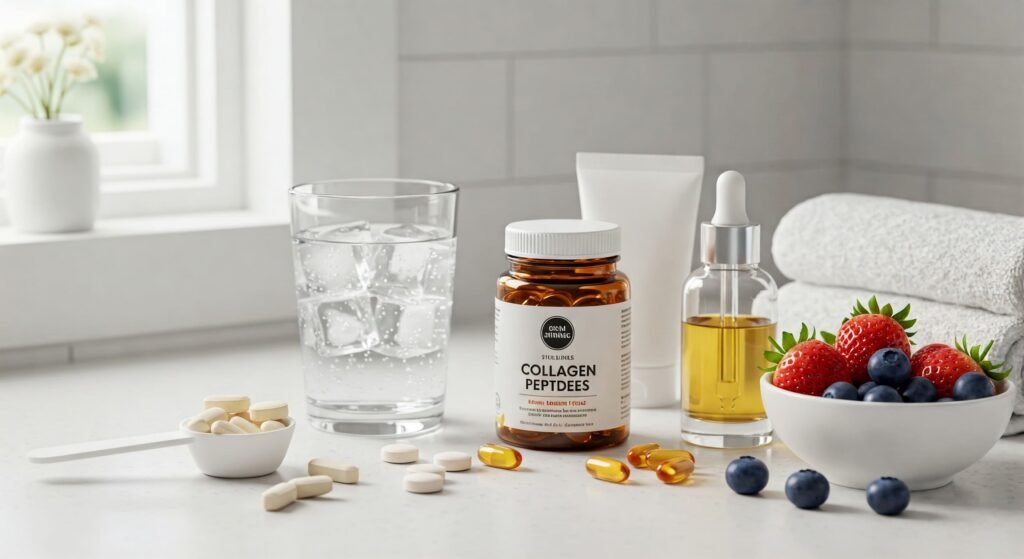Dietary supplements can boost health, but are they safe? While many are harmless in moderation, risks like contamination, overdoses, and drug interactions lurk. This article explores what makes them safe—or not—and how to dodge the pitfalls, with science to back it up.
What Are Dietary Supplements?
Dietary supplements are products you swallow to add nutrients or bioactive stuff to your diet—vitamins, minerals, herbs, amino acids, you name it. They come as pills, powders, capsules, or tinctures, sold everywhere from grocery stores to online fitness hubs. Unlike drugs, they’re regulated as food under the 1994 Dietary Supplement Health and Education Act (DSHEA) in the U.S., meaning the FDA doesn’t test them before they hit shelves. Companies are supposed to ensure safety, but that loose oversight opens the door to questions. They promise perks like more energy or better immunity, but safety? That’s where it gets tricky.
Are They Generally Safe?
Most supplements are safe when used as directed. Pop a 1,000 mg vitamin C pill daily, and you’re unlikely to feel worse than a mild stomach grumble. Calcium or magnesium at recommended doses rarely stir trouble. A 2021 Consumer Reports survey found millions use them without issue. But “safe” isn’t universal. Fat-soluble vitamins like A, D, E, and K can pile up in your body—too much vitamin D (over 4,000 IU long-term) might land you kidney stones, per NIH warnings. Water-soluble ones like B and C flush out easier, but megadoses still risk side effects. The baseline? Moderation usually keeps you in the clear.
What Are the Hidden Risks?
Here’s the rub: not all supplements are clean. The FDA doesn’t pre-check them, so quality’s a crapshoot. A 2021 investigation found some protein powders laced with lead or arsenic—yep, heavy metals. Herbal supplements can be wildcards—kava’s linked to liver failure in rare cases, and yohimbine (a fat-burner) can spike your heart rate dangerously. A 2023 JAMA report tied supplements to 15,000 ER visits yearly, often from overdoses or allergic reactions. Unregulated “weight loss” or “muscle” blends sometimes hide stimulants banned years ago, like ephedra. Cheap brands cut corners; reputable ones don’t.
Do They Interact with Medications?
Big time. Fish oil thins blood—great for your heart, dicey with warfarin, upping bleeding odds. St. John’s Wort, a mood-lifter, weakens antidepressants or birth control, per FDA alerts. Vitamin K clashes with blood thinners too, countering their effects. A 2022 American Journal of Medicine study flagged these mix-ups as a top safety blind spot. If you’re on meds—especially for heart, mood, or chronic stuff—supplements aren’t plug-and-play. Doctors need to weigh in, or you’re rolling dice.
Who’s Most at Risk?
Some folks should tread extra light. Pregnant women risk fetal harm from excess vitamin A (over 10,000 IU). Kids can overdose easier—gummy vitamins look like candy but pack a punch. People with liver or kidney issues might struggle to process high doses. Elderly folks on multiple meds face interaction traps. A 2020 Geriatrics review urged caution for seniors—more supplements, more problems. Even healthy gym buffs can overdo caffeine-heavy pre-workouts, landing heart palpitations. Your body’s quirks matter.
How Do I Stay Safe?
It’s not rocket science. Stick to recommended doses—check the label, not the hype. Look for third-party testing seals like USP, NSF, or ConsumerLab; they vouch for purity. Research brands—a 2021 FDA sweep nabbed tainted sex supplements, so Google’s your friend. Start low, especially with herbs—50 mg of ginseng beats 500 mg blind. Tell your doc what you’re taking, especially with meds or conditions. Buy from trusted spots, not sketchy pop-ups. Safety’s in your hands.
The Final Word
Are dietary supplements safe? Mostly, yes—if you’re smart about it. They’re tools, not toys, and risks like contamination or overuse are real but avoidable. Quality, dose, and context decide. Play it cautious, lean on science, and they’re less likely to bite back. Safe enough? For the savvy, sure.






